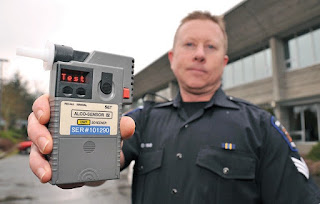If I Have a Criminal Record, Can I Still Act as a Surety?
IF I HAVE A CRIMINAL RECORD, CAN I STILL ACT AS A SURETY?
This blog is brought to you courtesy of LawyerSelect.ca
Let’s first begin by explaining what a surety is, and
what they do. Put simply, a surety is often required when an accused person is
granted bail and released from custody.
The Surety Explained –
When someone is charged with a criminal offence, sometimes
they are released at the police station, and some other times they’re held
until they can go before a court who will then decide if they get released on
bail. A great majority of the time, the court will require that the accused
have a surety in order to get bail. As such, a surety is basically someone who
promises the court that they’ll keep an eye on the accused, until his or her
charges have been dealt with. They’re usually required to live with the
accused, supervise the accused, and ensure that the accused obeys all the terms
of the bail agreement.
Some examples of these terms are:
·
To live with your surety, or live at an address
that your surety approves of.
·
A curfew or house arrest.
·
Attending all scheduled court dates.
·
Reporting to the police station when required.
·
Refraining from direct or indirect communication
with the victim or complainant in the matter.
·
Refrain from entering a predefined geographic boundary
where the victim or complainant live, work, or are known to frequent.
·
Refraining from the consumption and possession
of drugs and/or alcohol.
·
Keeping the peace at all times, and being of
good behaviour.
Again, it’s the surety’s job to ensure that the accused
obeys all the terms of the bail agreement (which is known as a recognizance of
bail). If the accused breaches any of the terms of their bail, the surety could
forfeit the money or assets that they pledged. This responsibility continues
until the case is completely over, or they’re removed as the accused’s surety.
What Factors Do the Courts Consider when Assessing a Potential Surety?
The judge or the justice of the peace, depending on the
level of court, is the ultimate decision-maker on the sufficiency of any
proposed surety. When making their decision, the judge or justice of the peace
will have different requirements for proposed sureties based on the charges
that the accused is facing. In general, however, the judge or justice of the
peace will consider the following factors in determining whether a proposed
surety is acceptable or not:
·
Surety’s financial means.
·
Surety’s character and overall disposition.
·
Surety’s criminal background or lack thereof.
·
Surety’s relationship to the accused.
·
Surety’s ability to effectively monitor the
accused, and ability to enforce the terms of the bail agreement.
In order to make a determination on the above factors,
the surety will often be required to testify under oath at the bail hearing.
Typically, they’ll be questioned first by the accused’s defence lawyer, who
will try and portray them in the best possible light. However, the surety will
also be subject to cross-examination by the Crown prosecutor, who will bring to
light any unsavoury facts about the surety. With that mind, we can now answer
the question posited by this article: can a person with a criminal record act
as a surety? The answer to that is: yes, there is no hard and fast rule that
prohibits an individual with a criminal record from acting as a surety. The
decision will fall entirely to the presiding judge or justice of the peace.
However, there are certain criminal convictions that may render it
inappropriate for a certain person to be acting as a surety for a certain
accused. A prime example of this would be if the surety has a history of drug
offences, and the accused is currently facing a drug charge. Similarly, a
surety who has criminal convictions for crimes of dishonesty or failing to
attend court, will likely be deemed inappropriate by a reviewing court, as
confidence in that person’s ability to monitor the accused will likely have
been eroded.




Comments
Post a Comment